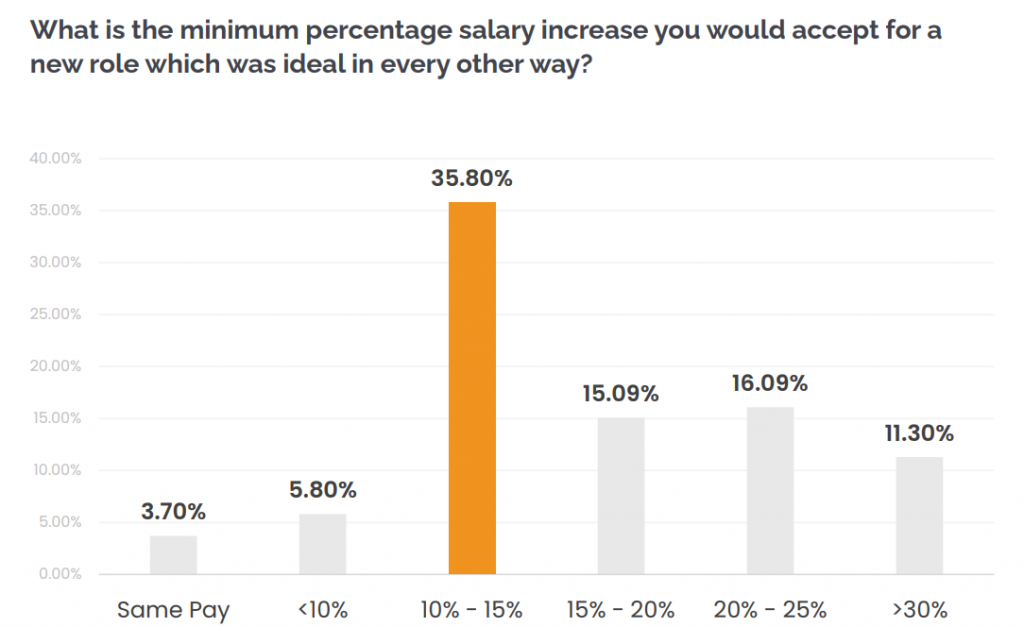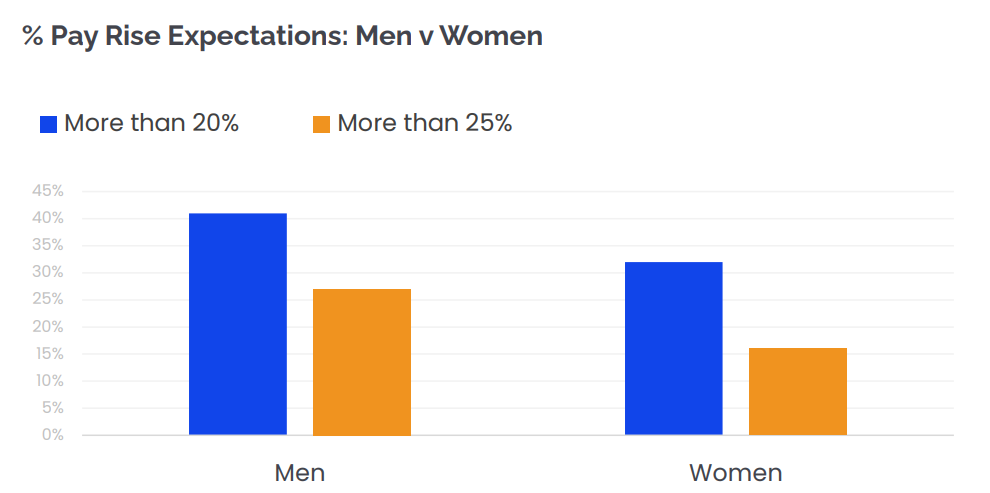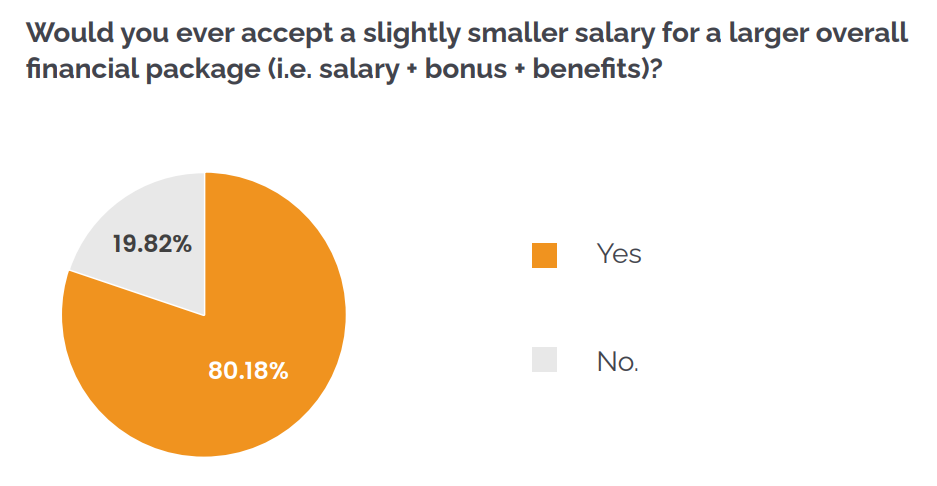The last mile is the hardest mile.
We’re not sure who invented this phrase, but if it wasn’t a long distance runner it was probably a hiring manager. In fact, anyone who has ever tried to close a candidate will be very wearily familiar with the way a seemingly smooth process can suddenly break down in the final straight, usually at about the point where you try to agree on pay.
Money. Who knew?
The most protracted negotiations are those where one or both sides seem to lose any sense of reality. Either the candidate suddenly wildly overestimates their talents or the company starts to imagine the whole world wants to work for them. When both of these things occur (as they often do when the company is a marquee brand in their sector), the impasse can be long and painful.
With all this in mind, WhiteCrow Research decided to run a survey.
We asked 106 candidates across Europe and Asia Pacific two simple questions:
- What is the minimum percentage salary increase you would accept for a new role which was ideal in every other way?
- Would you ever accept a slightly smaller salary for a larger overall financial package (i.e. salary + bonus + benefits)?
Respondents were of all ages and came from a range of sectors including financial services, energy, healthcare, consumer goods, manufacturing and technology.
Let’s look at the answers to question one.

The first surprise is how few people would move for the same pay. Remember, our thought experiment speaks of a role which is “ideal in every other way”. That means great work, nice boss, friendly colleagues, desired location and probably free fizzy drinks. Given how much everyone talks about work/life balance these days, you’d imagine more people would move to such an environment without requiring a raise. But it seems only 3.7% believe the job is more important than the cash.
From there, the narrative continues in the same vein. The largest segment of the pie represents those who would move for between 10% and 15%. So far, so reasonable. But now let’s add up all those who would insist on an increase of over 15%. That comes to more than half of respondents. More than one in ten would insist on a raise of over 30% and nearly one in five want an uptick of at least 25%.
These results re-emphasize a point that WhiteCrow Research has made in the past. In short, culture doesn’t trump pay. It’s not that people don’t care about a progressive working environment, it’s just that it’s already baked into their thinking. Once upon time, ideas like diversity, inclusion and employee welfare were novel offerings; today, they’re just part of a candidate’s minimum expectations.
So any talent or hiring managers who are still seeking to appeal to candidates with promises about company culture are missing the point. The average candidate response isn’t gratitude, it’s “I’d hope so too . . . now how much are you going to pay me?”
But of course the average candidate isn’t every candidate. Differences of temperament and expectation clearly exist. This becomes obvious when we filter our results by gender. Over 40% of the men we canvassed wanted a pay rise of over 20% but the corresponding figure for female respondents was only 32%. The difference is not huge, but it’s probably marked enough for talent leaders to note and consider. It is also consonant with previous studies we have conducted which strongly suggest women care more about company culture than their male counterparts. This being the case, it’s not surprising that some women might be prepared to trade a few percentage points in pay rise in order to work somewhere where they feel a strong
sense of belonging.

But what’s this we see in our answers to question two?
At first glance, these results don’t seem to fit the narrative established in question one. If our respondents’ salary expectations are so demanding, why would so many (over 80%) be willing to sacrifice money today for ‘jam tomorrow’? Given most of the world is still going through a cost-of-living crisis, you would imagine more people would prioritize regular income. Annual bonuses don’t pay the grocery bills.

Readers might imagine that our source pool were all senior level workers who can afford to think longer term because they’re already so well paid. But that’s not true. As we stated at the outset, we interviewed a mixed bunch of professionals, including plenty of people who are still in the first decade of their career and therefore quite low on the company pay scale.
Our theory is that people respond differently to a general idea than they do to a specific proposition. We see this a lot in the area of sustainability. Ask someone if they think there’s a climate crisis and they’ll invariably say yes, but suggest they give up their smartphone or cancel that overseas holiday and suddenly the crisis isn’t quite so urgent. As the US satirist PJ O’Rourke once said, “Everyone wants to save the world but no-one wants to help mom do
the dishes”.
In other words, our second question appeals to generalized ambition (to become wealthier) while the first one asks a specific question. What do you want today?
It is probably the first set of answers that hiring managers should spend most time thinking about because this is what every candidate negotiation comes down to. Of course, you also need a compelling EVP but don’t imagine this distinguishes you from everyone else. You still have to stump up the money. And, very possibly, slightly more than you imagine.
Contact
To discuss any of the issues covered in this document, or to obtain additional information on Whitecrow Research’s Talent Intelligence capabilities, please contact:

